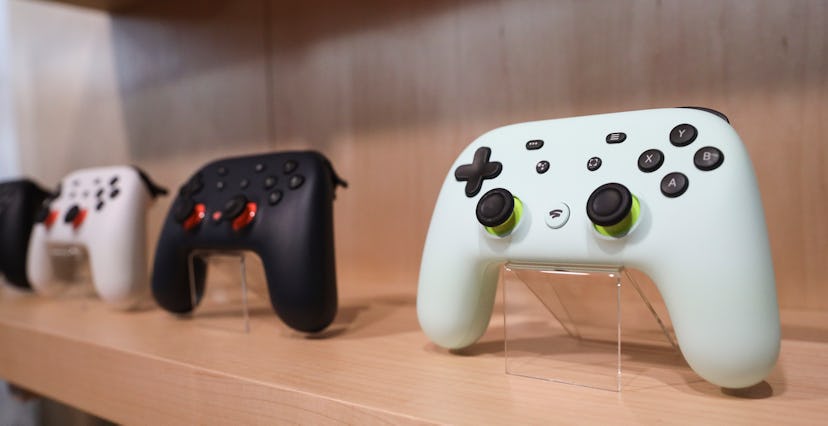Gaming
Stadia dev lead says actually the platform is ‘alive and well’
Why do we feel like we've heard this story before?

Google’s non-console Stadia has had a rough year thus far, but its development team says the platform is doing just fine. Or at least that’s what developer marketing lead Nate Ahearn says.
“I’d tell any non-believers to take notice of how we’re continuing to put our words into action, as we grow the Stadia Makers program and partner with AAA studios like Capcom, EA, Square Enix, Ubisoft, and others,” he told GamesIndustry.biz in an interview this week.
Color us skeptical. After a relatively mediocre first year of life, Stadia entered 2021 with a gleam of hope in its eyes that very quickly turned into a downward spiral. By the end of January, Google had shuttered Stadia’s first-party development studios without ever releasing a game.
It’s difficult to tell whether Ahearn’s statements are genuinely hopeful or guarded half-truths. Either way, we’re going to need some more proof before we believe him completely.
We’re not convinced — Ahearn’s assertions would be more believable if so many others hadn’t already spoken up about Stadia’s problems. Past employees have been open about Stadia’s many internal failures.
Employees who have been around for Stadia’s more recent life changes don’t seem pleased with the company’s direction, either. Stadia VP and head of product Jade Raymond left the company earlier this month; not long after, six more Stadia staffers followed him to his new gig. That doesn’t exactly inspire confidence in Stadia’s future.
New focus, new life? — As Ahearn says, Stadia has at this point switched gears entirely to focus on third-party gaming. Big releases like Resident Evil Village are available on the platform, and users generally report smooth gameplay on these AAA titles (as long as they have a high-speed internet connection). The company is also putting more resources into the Stadia Makers program, which highlights indie developers and self-publishing.
Ahearn focuses much of his interview on this new direction, as well as on the company’s commitment to introducing new features. A few weeks ago Stadia finally introduced a search bar on its store — which feels less like a feature and more like something that should’ve been shipped with the platform on day one.
Much of Stadia’s overall mediocrity has been due to its broken promises. It promised the earth at launch but hasn’t managed to live up to the hype it generated. Now the company’s execs are trying to reassure us again. So we have to ask ourselves: are we going to let Stadia get our hopes up again?
Update 5.17.21: An earlier version of this piece incorrectly stated that John Justice left Stadia in February; it was actually Jade Raymond who left to found Haven Studios.